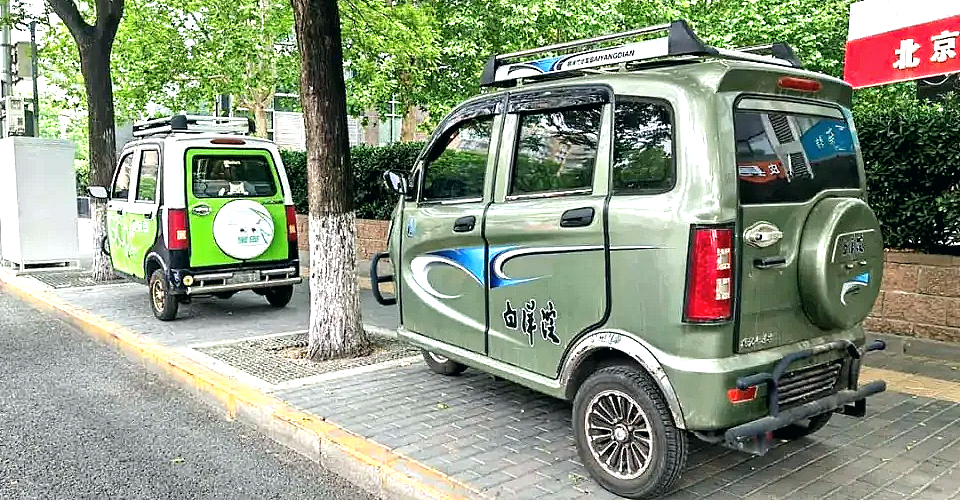Easy to drive, easy to park, unlicensed electric three-wheelers and four-wheelers known as “Lao Tou Le” have long been popular among the elderly in China.
Many of the elderly use “Lao Tou Le,” (which literally means Joy for the Elderly), for short-distance journeys, such as picking up their grandchildren from school and buying groceries.
These unlicensed vehicles are easy to drive because of their low speed and they are not subject to traffic rules and exempt from receiving a ticket for illegal parking, which have gained them their popularity among some elderly people, thus being nicknamed “Lao Tou Le.”
Li Xiang, a Beijing native, bought such a vehicle for his father several years ago to help pick up his kid from school.
The vehicle was bought for less than 30,000 yuan ($4,247), a price much lower than a normal electric vehicle.
The car runs at a maximum speed of 45 km/hour with a battery range of about 100 km.
“I myself also use the vehicle sometimes,” said Li, adding that the car is easier to park thanks to its compact size.
However, controversy surrounding these vehicles has been around for quite some time due to multiple reasons, including safety concerns.
“The manufacturers of these vehicles are often small rural or township enterprises or even workshops, and there are no national standards for the vehicles’ production, which leads to some having poor quality,” said Zhang Xiang, an automotive industry analyst.
Statistics from the Beijing Public Security Bureau show that in 2022, the city reported over 100 deaths caused by road accidents involving three-wheelers and four-wheelers.
Across the country, from 2012 to 2016, nearly 20,000 people have died of accidents involving low-speed electric vehicles, according to data released by the Ministry of Industry and Information Technology.

In response to the growing concerns, some local governments have introduced measures to restrict the use of Lao Tou Le.
For instance, Beijing will ban illegal electric three-wheelers and four-wheelers from hitting the road and entering public spaces such as squares and parking lots starting next year.
The proposed ban on Lao Tou Le has been warmly welcomed by residents who have long complained about the vehicles random parking, occupation of electric charging stations, and other misfortunes.
However, some believe the government should not rush to implement the ban.
“Many think the low-speed electric vehicles are energy-saving, environmentally friendly and cater to the travel needs of the low-income population,” said Dong Yang, the vice president of the China Association of Automobile Manufacturers.
Dong said that the regulation for low-speed electric vehicles is a complex and challenging issue.
“The issue involves multiple departments, and there is a lack of consensus,” said Dong.
Wang Junjin, a member of the National Committee of the Chinese People’s Political Consultative Conference, the country’s top political advisory body, suggested promoting the use of low-cost electric cars in place of replace Lao Tou Le.
However, the price of Lao Tou Le, normally ranging between 7,000 to 40,000 yuan ($922 to $5,672), is significantly lower than those of new energy cars, which prevent some low-incomers from making the shift.
There are other advantages of the Lao Tou Le that make it hard for users to give up them.
“My father is too old, and it is not practical for him to take a driver’s license test,” said Li Xiang from Beijing.
With the future of these vehicles hanging in the balance, it is hoped that Lao Tou Le will not be banned, and will remain to serve the elderly population under improved regulation, said Wang.
ADVERTISEMENT
ADVERTISEMENT








































